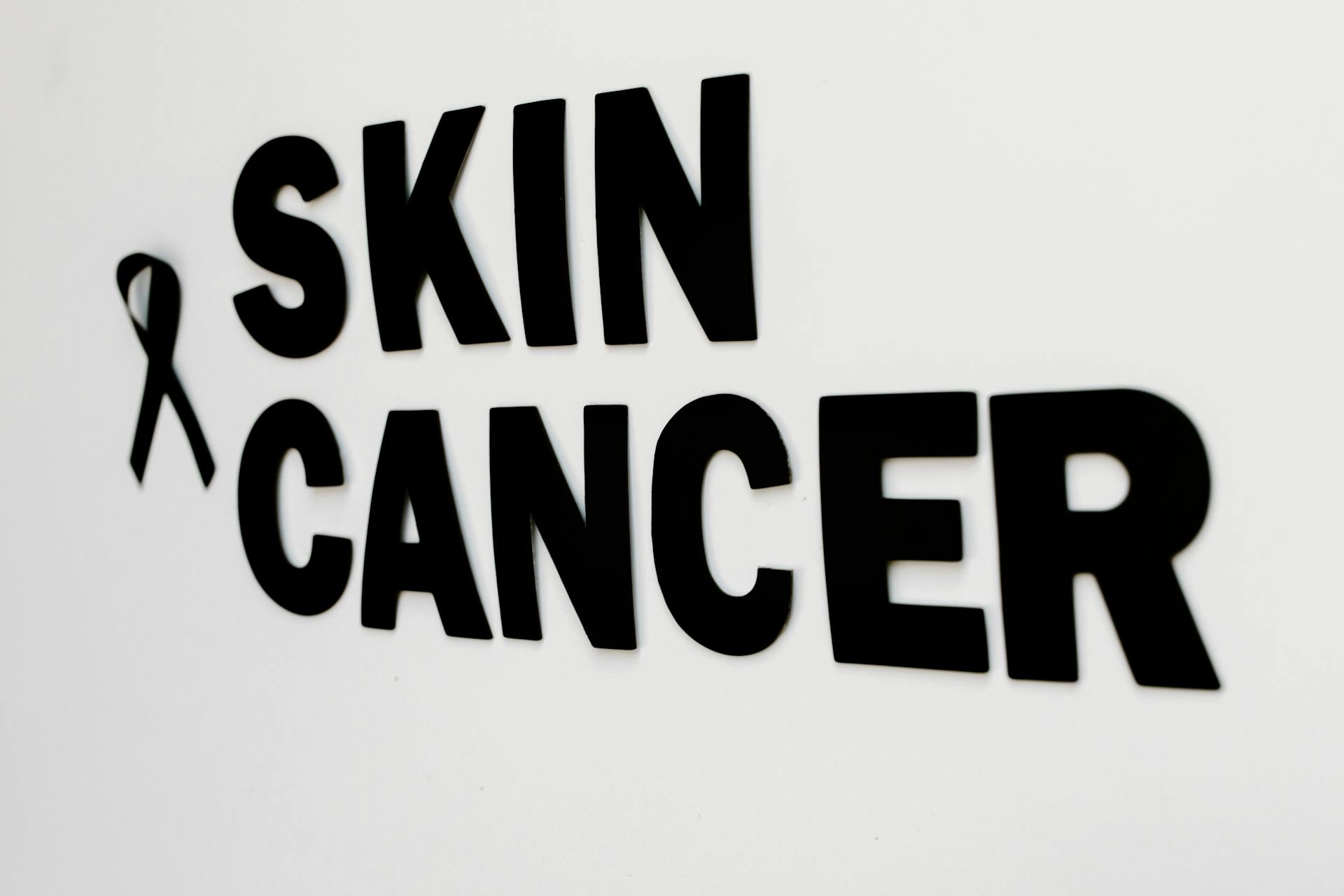
As a healthcare professional, you've dedicated your career to helping others, and now it's time to think about your own home. With the right mortgage loan, you can make your dream of homeownership a reality.
Many healthcare professionals face unique financial challenges, such as high student loan debt and variable income. However, some mortgage loans cater specifically to these needs.
Some mortgage loans offer more favorable terms, such as lower down payments or more flexible credit score requirements. For example, the VA loan program offers 0% down payment options for eligible veterans.
These specialized mortgage loans can help healthcare professionals achieve their goal of homeownership.
What Is a Mortgage Loan for Healthcare Professionals?
A mortgage loan for healthcare professionals is a special type of loan that caters to the unique needs of doctors and medical professionals.
These loans allow you to put down less than 20% and still avoid paying Private Mortgage Insurance (PMI), which is a big plus, especially since paying PMI isn't tax deductible anymore.
Physician mortgages also tend to focus on your total required student loan payment, rather than the total amount you owe, making it easier to qualify.
How They Work
Physician mortgages work similarly to conventional mortgages but are more accommodating to physicians and their unique circumstances.
You can put down less than 20% and still avoid paying Private Mortgage Insurance (PMI), which is a big advantage, especially since paying PMI hasn't been tax deductible since 2021.
Physician mortgages generally only look at the total required student loan payment, not the total amount owed.
This is a more realistic approach, as it takes into account the actual financial burden of student loans.
They will also generally accept a signed employment contract as proof of income, rather than requiring tax stubs.
Independent contractors, however, still need two years of tax returns to prove income.
What Are They for?
A mortgage loan for healthcare professionals is a type of loan that allows them to purchase a home with a low down payment and flexible payment terms.
Mortgage loans for healthcare professionals often have lower interest rates and fees compared to traditional mortgage loans.
These loans typically require a minimum credit score of 620 and a maximum debt-to-income ratio of 43%.
Healthcare professionals can use mortgage loans to purchase their dream home, invest in a rental property, or even refinance an existing mortgage.
The loan amount can range from $50,000 to $500,000, depending on the lender and the borrower's qualifications.
Choosing a Lender
Choosing a lender can be a daunting task, especially for healthcare professionals with unique financial situations. Each WCI Recommended Mortgage Lender has been vetted by thousands of investors and offers top-notch service.
Finding the right lender requires research and comparison of rates and terms from different lenders. This can save you thousands in the long-run by evaluating the total cost of the loan, including interest rates, fees, and closing costs.
Traditional lenders like banks and direct lenders offer various loan options for nurses and healthcare professionals, including FHA, VA, USDA, and conventional loans.
Expand your knowledge: Hard Money Heloc
Finding the Right Lender
The key to finding the right lender is doing your research and comparing rates and terms from different lenders. This can save you thousands in the long-run by evaluating the total cost of the loan, including interest rates, fees, and closing costs.
Lenders who offer flexible loan solutions that cater to non-traditional income sources, like Defy, can be a good option for healthcare professionals. They often have experience working with unique financial situations.
You can also look for lenders who have a good reputation and are recommended by others, such as WCI Recommended Mortgage Lenders. They have been vetted by the staff and thousands of white coat investors over the years.
Some lenders, like Premier Realty and Lending, specialize in working with doctors and other professionals, offering high-end mortgages and personalized service. They have a motto of "On Time and as Promised" and a streamlined process that can be started right from your smartphone.
Additional reading: Bad Credit Mortgage Lenders in Missouri
It's essential to consider the lender's experience working with healthcare professionals and their unique financial situations. This can help you find a lender that truly understands your needs.
You can start by getting multiple quotes from different lenders and evaluating their offers. This will give you a clear picture of the total cost of the loan and help you make an informed decision.
Funding Corp
Funding Corp is a lender that specializes in helping medical professionals like doctors, dentists, and pharmacists achieve their dream of homeownership. They offer a range of financing options, including the Doctors+ Loan Program.
This program is designed to meet the unique financial needs of medical heroes, who often incur significant student loan debt that can make it difficult to qualify for traditional home financing. Finance up to $1.5 million with a down payment as low as 0%.
One of the benefits of the Doctors+ Loan Program is that it doesn't require Private Mortgage Insurance (PMI), which can save you thousands of dollars over the life of the loan. You can also choose from ARM and fixed rate options, and the program is available for purchase and rate/term refi.
For another approach, see: Equipment Financing with No Money down
Here are some key details about the Doctors+ Loan Program:
Funding Corp also offers other financing options, including One Close Construction Financing and One Close home renovation Financing, which can help you achieve your dream of homeownership.
Suggestion: Capital One Home Loan Application
Who Qualifies?
If you're a healthcare professional looking to qualify for a mortgage loan, you're in luck. You're not just limited to doctors and dentists – other high-income professionals like accountants, attorneys, and advanced practice clinicians can also qualify.
A credit score of 720-740 FICO is usually required for a physician loan, but some lenders may consider borrowers with a 680 credit score if they have 6-12 months of cash reserves.
You'll want to make sure your credit score is in good shape before applying for a mortgage loan. Paying off credit cards, missing payments, and borrowing more money can all negatively impact your credit score.
To qualify for a nurse home loan, you'll need to be a licensed nurse or healthcare worker, and you'll need to work with a Nurse Next Door-affiliated Real Estate Agent and one of their preferred mortgage lenders.
A fresh viewpoint: Everything You Need to Know about Mortgage Loans
Here are some examples of professionals who may qualify for a physician loan:
- Dentists
- Podiatrists
- Veterinarians
- Optometrists
- Accountants
- Attorneys
- Certified Registered Nurse Anesthetists (CRNA)
- Advanced Practice Clinicians (PAs, NPs)
It's worth noting that different nurse home loan options have specific eligibility requirements, and your Loan Officer will need to verify your income to ensure affordability. This may involve providing documents such as pay stubs, tax returns, and proof of any additional income.
Types of Mortgage Loans
Interest-only mortgages can be a good option for healthcare workers who are still completing their studies or are looking for lower initial monthly payments. These loans have an initial three to 10-year interest-only period at the beginning of the loan.
Conventional loans are widely available from most banks, credit unions, and mortgage lenders. They're the most common type of mortgage loan, accounting for over 70% of all mortgages.
Conventional loans offer a low down payment option of only 3%, and potentially lower interest rates. However, they have stricter qualification requirements, and PMI is required for down payments of less than 20%.
Here's a summary of the types of mortgage loans we've discussed:
VA
VA loans are a great option for nurses who have served in the military. These loans offer zero down payment, no mortgage insurance, and generally lower interest rates compared to conventional loans.
To qualify for a VA loan, you'll need to obtain a Certificate of Eligibility (COE) from the Department of Veterans Affairs (VA) and work with an approved mortgage lender. This certificate verifies to lenders that you qualify based on your military service history.
A VA loan is a type of mortgage that doesn't require a down payment, which can be a huge advantage for nurses who want to buy a home without breaking the bank. Many nurses choose to roll the one-time VA funding fee into their loan balance, so they don't have to pay it upfront.
Here are some key benefits of VA loans:
- Zero down payment required
- No mortgage insurance required
- Generally lower interest rates compared to conventional loans
FHA
FHA loans are government-backed mortgages designed to make homeownership more accessible. They offer lower down payment requirements, often as low as 3.5%, and more lenient qualification criteria.
FHA loans have higher rates and fees compared to a 20% down conventional loan. They also require mortgage insurance premiums, both upfront and annually.
Borrowers with lower credit scores, as low as 550, can qualify for FHA loans. However, they'll still need to pay mortgage insurance premiums, which can add to their monthly mortgage payment.
FHA loans have stricter property and appraisal requirements compared to conventional loans. This means borrowers will need to meet certain standards to qualify for the loan.
FHA loans can be a good option for nurses who want to buy a home, especially if they have a lower credit score or limited savings for a down payment.
Take a look at this: Types of Loans That Dont Need a down Payment
USDA
USDA loans are a great option for nurses who want to buy a home in a rural area. They require no down payment or mortgage insurance. To qualify, you need a minimum credit score of 640.
The property you're interested in must also meet specific criteria. USDA loans are a good choice for nurses who are just starting out in their career and have limited savings.
Check this out: Mortgage Loans for Nurses
Benefits and Drawbacks
You'll be happy to know that physician mortgage loans have some amazing benefits, especially for healthcare professionals.
No Private Mortgage Insurance (PMI) is required, even with a down payment as low as 0-10%. This can save you a significant amount of money each year.
Little to no down payment is required, with 90-100% financing available depending on property location, credit score, and loan amount. This can make it easier to get into a home.
Higher loan amounts are allowed, with lenders offering 95-100% up to $1 million and up to 90% for a $2 million loan amount. This can provide more flexibility when purchasing a home.
Here are some key benefits and drawbacks to consider:
Pros and Cons
Pros of physician mortgage loans include no private mortgage insurance (PMI) requirement, little to no down payment, and higher loan amounts allowed. This can make it easier to qualify for a mortgage and get into a home with a lower upfront cost.

One of the biggest advantages is that you can qualify for a mortgage with a down payment as low as 0-10%. This can be a huge relief for those who may not have a lot of savings.
Physician mortgages also offer higher loan limits, typically up to $1 million or more, depending on the property location and loan amount. This can be beneficial for those who need a larger loan to purchase a home.
Some lenders can close on your loan even if you're 30-90 days before starting your new job, as long as you have a contract in hand. This can be a convenient option for those who are about to start a new position.
Here are some specific benefits of physician mortgage loans:
- No PMI requirement
- Down payment options as low as 0-10%
- Higher loan limits up to $1 million or more
- Relaxed income requirements, including closing up to 90 days before starting a new position
- Student loan debt might be excluded from debt-to-income ratio (DTI), depending on the lender
Professional Benefits
One of the biggest benefits of professional mortgage loans is the low down payment options, which can be as low as 3% to 10% down. This can be a huge advantage for healthcare workers who may not have a lot of savings.
A fresh viewpoint: Low down Payment Conventional Mortgage Loan
With a professional mortgage loan, you don't need to worry about private mortgage insurance (PMI), which can save you hundreds or even thousands of dollars a year. These loans also offer a broad range of qualifying degrees and professional licenses, making them accessible to many healthcare workers.
Some professional home loan programs, such as those for healthcare workers, offer even more generous terms, including down payment options as low as 0% and no PMI requirement. These programs can also provide higher loan limits, ranging from $750,000 to $2 million or more.
In addition to these benefits, some professional home loan programs offer relaxed income requirements, allowing you to close on a home up to 90 days before starting a new position. Some lenders may also exclude student loan debt from your debt-to-income ratio, making it easier to qualify for a loan.
Here are some of the professional degrees and licenses that may qualify for these loan programs:
- MD
- DO
- DDS
- DMD
- PA
- NP
- CRNA
- OD
- DPM
- Pharmacist
Professional Program Drawbacks
Some professional mortgage programs come with limitations on loan amounts, which can be a drawback for borrowers. For example, loan amounts might be capped at $350,000.
Finding a lender that serves both your profession and location can be challenging. This can make it difficult to secure a mortgage through a professional program.
To qualify for the lowest down payment option, you'll need to have a verifiable income for the last two years, which can be a hassle to gather. A credit score of at least 580 is also required.
Borrowers with lower credit scores may still be eligible for a mortgage, but they'll need to put down a larger down payment, such as 10% if their credit score is 500 or lower.
Here are some specific drawbacks of professional mortgage programs:
- Loan amounts might be capped (e.g., $350,000).
- Can be challenging to find a lender that serves both your profession and location.
Physician mortgages have their own set of drawbacks, including higher monthly mortgage payments when using a low down payment solution. This can put you in a worse financial situation if you can't afford your monthly payments.
For another approach, see: Balloon Loan Definition

Qualifying for a higher loan amount might not be the best decision if you can't afford your monthly payments. This could lead to financial difficulties down the line.
Programs might be limited by state or region, as well as qualifying property type. This can make it difficult to find a mortgage that meets your needs.
Tips on Refinancing
Refinancing can be a smart move, but it's essential to do your research and approach it strategically. Healthcare workers often have steady employment, which can be viewed favorably by lenders, making them more likely to secure better terms.
Consider your job stability and highlight your consistent income when applying for refinancing. This can help you secure better loan options and rates. By doing so, you can potentially save money on interest and fees.
It's also crucial to compare multiple offers and loan options from different lenders. This will help you find the best deal for your specific situation. Non-QM loan options, for example, can offer more flexibility than traditional loans.
Before reaching out to lenders, make sure you explore the reasons for refinancing. Are you looking to consolidate debt or reduce your monthly payments? Maybe you want to change your loan term. Whatever your reason, being informed will help you make a more informed decision.
On a similar theme: Mortgage Companies That Will Refinance after Chapter 7
Getting Started
Getting pre-approved for a mortgage is an important first step before starting your house hunt. This not only gives you a clear budget but also shows sellers that you are a serious and qualified buyer.
You can get pre-approved with a lender by providing your financial information, and they'll determine how much you can borrow.
For more insights, see: Quicken Loans Mortgage Pre Approval
Get Pre-Approved for House Hunting
Getting pre-approved for a mortgage is an important first step before starting your house hunt. It gives you a clear budget and shows sellers that you are a serious and qualified buyer.
Pre-approval involves providing a lender with your financial information and they'll determine how much you can borrow.
Getting pre-approved with a lender like Defy offers a streamlined process to help you get a head-start on your home-buying journey.
Supporting Our Heroes with Solutions
If you're a healthcare worker, you know how challenging it can be to achieve homeownership with long hours, student loan debt, and irregular income streams. As of 2022, 14.7 million people were employed in healthcare jobs and employment in the healthcare sector is projected to grow much faster than other industries from 2022 to 2032.

The good news is that there are home loans tailored for healthcare workers, offering alternative paths to homeownership or refinancing. You can explore different loan types available and get tips on applying for a home loan.
In some areas, like the Bay Area, Manhattan, and the District of Columbia, healthcare workers may need to stretch the rule of thumb for mortgage debt. If you're in this situation, remember that stretching means going to 3-4X gross income, not 10X gross income.
To qualify for a home loan, you'll need to meet certain requirements, such as having a stable income and a good credit score. The Homes for Heroes program provides financial assistance to registered nurses, first responders, and veterans, offering benefits like reduced real estate service fees and special discounts.
Here are some potential benefits of the Homes for Heroes program:
- Reduced real estate service fees
- Lending fees
- Special discounts for heroes
On average, nurses could save $3,000 through this program after closing on a house.
Many Options Exist
You can get a traditional physician mortgage loan, but if that's not your thing, there are plenty of other options available. These options usually come from the same lenders who offer physician mortgage loans.
Physician mortgage programs extend their eligibility to include other high-income professions, not just doctors. Healthcare professions like physician assistants, nurse anesthetists, and nurse practitioners might qualify, depending on the lender.
A good credit score is usually required to access the best down payment options for these programs. You'll typically need a 700 or higher credit score to qualify.
Professional home loans for healthcare workers are another option. These programs aren't as generous as physician loans, but they can still offer a low down payment solution with flexible underwriting.
Registered nurses and EMS personnel often don't qualify for physician loans, but a professional home loan can provide a lower down payment option without private mortgage insurance costs.
Discover more: Mortgage Loans Based on Bank Statements Not Taxes
Physician mortgage programs offer the most benefits and competitive interest rates, especially for doctors and dentists. However, other medical professionals have mortgage options available to them as well.
A healthcare worker's mortgage options can vary greatly depending on their profession, location, and other factors. For example, a registered nurse might be limited to a single bank in their state that offers professional home loans with an adjustable rate.
Frequently Asked Questions
Do healthcare workers get lower mortgage rates?
Yes, many mortgage programs offer lower interest rates to healthcare workers, including nurses, compared to standard mortgage offerings. This can help make homeownership more affordable for those in the medical field.
Sources
- https://www.whitecoatinvestor.com/personal-finance/the-doctor-mortgage-loan/
- https://www.studentloanplanner.com/healthcare-worker-home-loans/
- https://www.herohomeprograms.com/healthcare-workers/
- https://defymortgage.com/learn/home-loans-for-healthcare-workers/
- https://www.directmortgageloans.com/mortgage/home-loans-for-nurses-your-key-to-owning-a-home/
Featured Images: pexels.com


